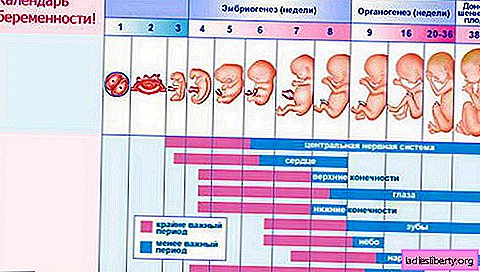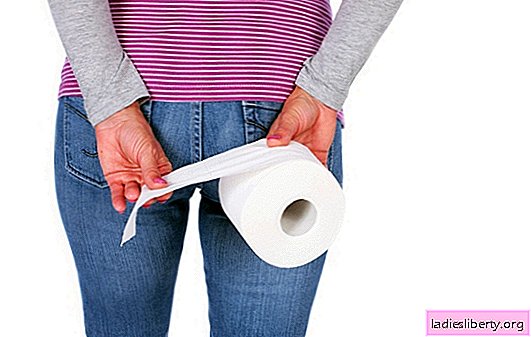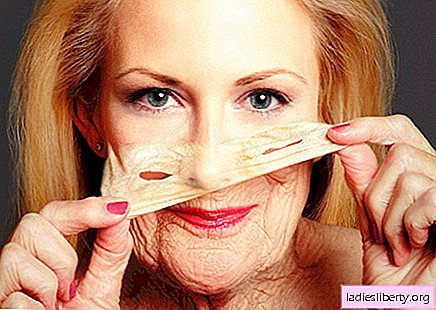
Many parents of infants are worried that the baby often spits up milk.
In most cases, you should not worry, but in some situations you should consult a doctor for help.
In the article we will talk about the causes, the moments when you need to worry and ways to reduce the number of regurgitation in infants.
What is regurgitation
Spitting up is a spontaneous process of ejecting milk after feeding from the stomach through the esophagus into the oral cavity and out. Scientifically, this process is called reflux. It is not a disease and refers to normal phenomena in infants. Eight out of ten children under 4 months of age regurgitate at least once a day. By 6 months, many children have this problem, and after a year, almost everyone disappears.
An explanation of the frequent regurgitation in infants is the underdevelopment of the septum at this time - the esophageal sphincter that connects the stomach and esophagus.
In premature babies, the sphincter is less developed than in peers, therefore, they are characterized by frequent spitting up.
With adulthood, a premature baby catches up with peers, this muscle develops, and the number of regurgitation decreases, and then they disappear completely.
Reasons why a baby spits up milk
The main reasons why a baby spits up milk are:
• formation of air in the stomach;
• overfeeding;
• incorrect position, procedures after feeding.
An increased amount of air in the stomach presses on its walls and causes a backward expulsion of gases and milk into the gastrointestinal tract and oral cavity. This is due to the following factors:
• improper attachment of crumbs to the breast, as a result of which a gap is formed between the mother’s nipple and the baby’s mouth and the air is swallowed through it;
• during artificial feeding, air is swallowed due to a large hole in the nipple;
• quick sucking leads to the fact that the child eats more than he needs, while swallowing air, excess milk and air go outside in the form of belching;
• The horizontal position of the baby after feeding contributes to air congestion.
The second reason for regurgitation is overfeeding the crumbs. Overeating milk usually occurs when milk comes in large portions. When breastfeeding, the baby eats, if mom has a lot of milk, the baby eats and eats more. With artificial feeding, you need to monitor the norm of the mixture by age and do not overfeed the baby.
If the baby is placed on the tummy after feeding, then it will most likely burp, as there will be a crushing of the stomach. This can happen if you hold the baby in your arms, supporting it by the stomach. No need to brake, change clothes, bathe the child immediately after feeding. These procedures must be done before feeding or one hour after feeding.
If the baby's regurgitation occurs no later than one hour after feeding, he feels well, does not worry, does not cry, and gains weight well, then the problem of regurgitation should not bother you.
When to worry if a baby spits up milk
It is very important to distinguish between normal reflux and regurgitation, indicating the presence of serious diseases.
The following symptoms should alert you:
• belching "fountain";
• violation of the general condition of the child: fever, anxiety, lethargy;
• weight loss;
• the appearance of blood impurities in belched milk.
If these signs appear, you should definitely contact your doctor. Most often, this indicates one of the following violations:
• lactose intolerance - this is the lack or absence in the child of the lactase enzyme, which is responsible for the breakdown of lactose in the stomach (a protein found in the milk of mammals, including humans). In such cases, the child cannot digest breast milk in sufficient quantities, often spits up and loses weight. If an enzyme deficiency is detected, the doctor prescribes lactose-free mixtures and the problem is usually eliminated;
• incorrect development of the gastrointestinal tract - a deviation from the norm of the size, shape of the digestive system, their compression. There are many development options, so if you identify adverse symptoms, you need to contact a specialist for examination;
• neurological disorders resulting from intrauterine pathology - increased cranial pressure, disturbance in the activity of the nervous system, muscle tone;
• dysbiosis develops in children on artificial feeding and after taking antibiotics;
• infectious diseases - intestinal infections, meningitis, hepatitis, accompanied by additional symptoms - fever, anxiety, colic, diarrhea;
• allergy - to breast milk when the mother consumes foods that cause the baby to be allergic or to the mixture.
Why does a child sprinkle milk in a fountain
The spitting of milk by a fountain frightens many mothers. If the situation occurred once a day and the volume of milk is not more than 50 ml, then this can be considered the norm. Repeated or profuse regurgitation can indicate a baby's health problems. Fountain spitting that occurs several times a day can cause dehydration or choking.
It is important to distinguish what happens: regurgitation or vomiting. The main differences:
• milk regurgitation usually occurs 2-5 minutes after feeding, less often up to an hour after it, vomiting is independent of feeding and can be repeated several times between them;
• with vomiting, the child’s well-being worsens, he becomes lethargic and pale, with regurgitation, he feels good, active;
• color and smell during spitting are not specific, in contrast to vomiting.
Why does the baby spit milk yellow
If the baby burps yellow, then this indicates the presence of bile in the vomit. This is an alarm. More often this situation occurs with children who are on artificial or mixed feeding. The diagnosis is made after passing the necessary tests.
What to do if the baby spits up milk
It is unlikely that it will be possible to exclude regurgitation. It is necessary to wait until the digestive organs of the child become stronger. But if you follow the recommendations for proper feeding, you can reduce the number and volume of regurgitation in babies.
To reduce the amount of air in the stomach you need:
1. Ensure that the child correctly takes the nipple: the areola should be completely captured by the baby's mouth. If the nipple is not properly gripped, the child smacks, various sounds are made. If the baby took the breast incorrectly, you need to carefully pick it from the baby and insert it into the mouth so that the nipple is taken correctly.
2. Before feeding, lay the baby on the tummy. Thus, two tasks can be solved - reducing accumulated gas jets, strengthening muscles on the tummy and neck.
3. After feeding, keep the crumb in a column until air escapes. More often this happens after 2-5 minutes, sometimes it takes longer - up to 20 minutes.
4. Make sure that the head of the bed or stroller where the baby is after feeding is slightly raised. You can put a book under the crib mattress in the head or a thin pillow for babies.
5. No need to wait until the child is very hungry. Then he will eagerly suck out the milk and swallow air.
6. When feeding the mixture, make sure that the opening is not too large, the bottle is not tilted high. This ensures that the baby chokes during feeding and swallows air. Too small a slope also affects the ingestion of air;
7. If gaziki torture the baby, you can give him drink drugs based on fennel.
In order for the child not to burp from overfeeding, you should:
1. Feed the baby on time, no need to wait for him to get hungry and overeat;
2. Give a mixture corresponding to the age of the crumbs in the recommended amounts.
After feeding, the baby needs to lie down calmly. You do not need to spread it on your stomach, change clothes, shake, flip and bathe.
You should lead an active lifestyle with the baby. More often walk with the baby, carry it in your arms in an upright position, bathe daily. All this helps to strengthen all the muscles of the child, including those located in the digestive tract. Tummy massage helps strengthen the abdominal muscles.
In order for the child to vomit less, one should act according to the recommendations, remove the factors that provoke the problem and have patience to wait until the child’s digestive organs get stronger and the problem disappears.











